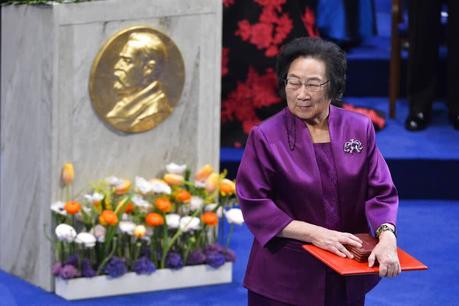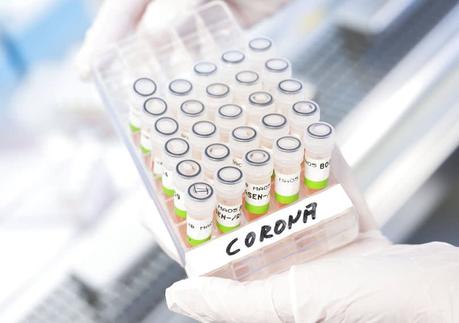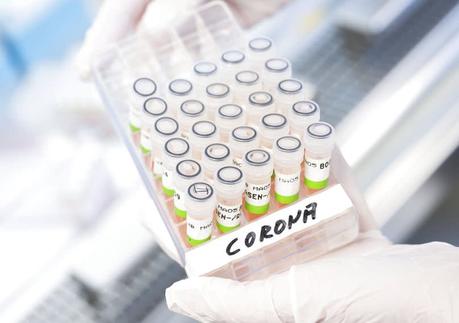In 1968, US Senator Robert Kennedy quipped that GDP "measures neither our wisdom nor our knowledge - in short, it measures everything except what makes life worth living."
Just as GDP can measure economic growth and prosperity, but not well-being or progress towards sustainable development, the volume of scientific publications is also a measure of quantity and not quality.
The limits of the "public or perish" mantra were underlined in 2015, when Tu Youyou was awarded the Nobel Prize "for her discoveries regarding a new anti-malarial therapy" she had developed in a Chinese laboratory forty years earlier.
As the UNESCO Science Report notes, the laureate had an atypical profile. She was not well known in China before winning the prize and was not an honorary academic ( yuanshi) of the Chinese Academy of Sciences or the Chinese Academy of Engineering.
Furthermore, as the report outlines: "In 2020, the Ministry of Education and the Ministry of Science and Technology issued a directive discouraging universities from rewarding researchers with high publication output with bonuses, awards, jobs or promotions, in an effort incentives that encouraged scientists to publish one paper after another, rather than focusing on high-impact work."
Neglecting social needs undermines confidence in science
Other countries are also reevaluating their adherence to the "publish or perish" mantra as a measure of scientific achievement.
Too often, scientific research is conducted that bears little relation to the challenges facing the population, such as poor water quality or climate-sensitive crops.
This neglect of social needs undermines confidence in science. A population that does not see the benefits of science may be less supportive of the scientific enterprise.
The persistent socio-economic, technological and digital divide between countries and communities is evidence of the unfinished agenda of open science. To thrive, open science requires investment.
The story continues

Of course, scientists should also enjoy intellectual freedom. Basic research, by definition, has no immediate application, even though its spin-offs can bring about radical changes over time.
It was exploratory basic research that led to the sequencing of the first human genome in 2003. The Human Genome Project was a pioneer in the field of open science.
The project also produced high-impact research that spawned an entirely new scientific discipline: genomics.
Today, the field of genomics has given rise to gene therapies, for example for cancer patients. It is thanks to genomics that the coronavirus responsible for the COVID-19 pandemic could be identified so quickly in early 2020.
A long road ahead
The COVID-19 pandemic has put this virtue of science in the spotlight: the culture of sharing. It was this culture that accelerated the development of the first vaccine.
Pharmaceutical companies published their vaccine development data in specialized journals where virologists and other specialists could view them.
Major commercial publishers, science funders and others have committed to making all research and data on the COVID-19 outbreak immediately available.
The number of scientific publications in the field of open access, collaborative research platforms, open repositories, open source software and hardware is increasing, but there are striking differences between disciplines and regions.


Some 193 governments witnessed the benefits of this culture of sharing in real time before endorsing the UNESCO Recommendation on Open Science in November 2021, committing to making openness a hallmark of the practice of science in their respective countries.
UNESCO is monitoring progress towards this goal. On December 14, it launched the UNESCO Open Science Outlook, the first global assessment of the status of open science, based on input from experts around the world.
There is still a long way to go, as progress is far from uniform.
The number of scientific publications in the field of open access, collaborative research platforms, open repositories, open source software and hardware is increasing, but there are striking differences between disciplines and regions.
Although 60% of scientific articles on good health and well-being are now available open access, approximately 50% of articles on climate change remain locked behind the paywalls of scientific journals, as do 57% of articles on clean water and sanitation and 48 % of articles about clean water and sanitation. of those in biodiversity, despite each of these areas being the focus of a sustainable development goal to be achieved by 2030 - and despite this research being publicly funded.
Open science needs investment to thrive
Furthermore, the emphasis so far has been on ensuring open access, but this is only one part of open science; Openness also means promoting dialogue and engagement with broader society.
There has been less focus on expanding participation in science, for example by recognizing the contributions of citizen scientists and indigenous knowledge or the potential role that communities can play in co-designing certain research projects.
The persistent socio-economic, technological and digital divide between countries and communities is evidence of the unfinished agenda of open science. To thrive, open science requires investment.
Access to funding, as well as skills and essential tools, remains unequal, hindering the realization of the full potential of open science. Until these barriers are lifted, the promise of openness in science will remain unfulfilled.
Mainstreaming open science means that open science must become the norm for all scientific research. This will require a cultural change. We invite governments, institutions, researchers and inventors everywhere to join us on this transformative journey.
Lidia Brito is Deputy Director-General of Natural Sciences at UNESCO. At Euronews we believe that all opinions matter. Contact us at [email protected] to send pitches or submissions and join the conversation.